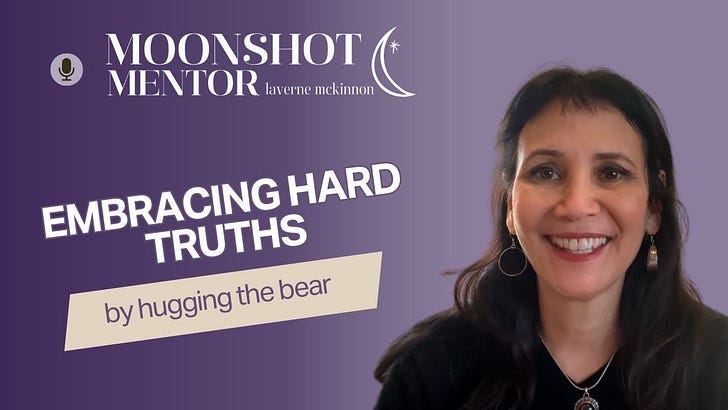What most people don’t understand is that growing your career is completely different from scaling your career. Growth and scaling are often used interchangeably, but they’re not the same thing. Depending on where you’re at in your career trajectory, you may want to consider scaling rather than growing.
Growth is about increasing your output—taking on more projects, acquiring new skills, or advancing to a higher position. There’s often a correlation between the hours you put in and the progress you make. That kind of progression has value, but it can also be exhausting and lead to burn out. Growth also tends to be linear—one step at a time with each new opportunity demanding more work, time, or resources.
Scaling, on the other hand, is about expanding your impact without a proportional increase in effort. Think optimizing systems, relationships, and strategies so you can achieve more without the burn out. For example, rather than networking endlessly, you cultivate a handful of key relationships that open multiple doors. Instead of taking on every opportunity, you focus on the ones that truly align with your long-term goals.
So, how do you actually scale your career? Let’s break it down.
Three Key Elements to Scaling Your Career
1. Trim & Optimize for Efficiency
Scaling is about ensuring that every choice you make with your time, energy, and creativity delivers a real return. If a commitment isn’t giving you momentum—financially, emotionally, or professionally—it might be weighing you down. Trimming unnecessary tasks and optimizing your workflow aren’t just about getting more done; they ensure that your investments actually move you forward. The key is identifying what drains you versus what fuels you, so you can double down on what brings both impact and fulfillment.
Ask yourself:
What tasks, habits, or commitments can you eliminate or delegate?
What work energizes you, and what drains you?
What work is aligned with your purpose and values?
Then be ruthless. When I did an audit of how I was spending my time, I realized I was wasting hours trying to get better at Canva. I don’t have a natural talent for it and the amount of time it took me to create one LinkedIn carousel was ridiculous. But I kept clinging to the idea of mastering Canva because it reinforced my identity of being capable and competent. The truth? It was a terrible use of my time and energy. Letting it go freed me up to focus on the work that actually moved the needle like creating a new mini-workshop on Substack for career grief.
2. Build the Right Infrastructure
You can’t scale alone. The right mix of people—mentors, advisors, advocates, and colleagues—can accelerate your growth. Not having the right mix of people is like carrying a 50 pound backpack while trekking up a mountain. Think of your infrastructure as the professional scaffolding that supports your next level.
Ask yourself:
Who in your network provides real, constructive feedback that helps you grow, and who just reinforces your comfort zone? I call these people my truth tellers.
Which responsibilities are you holding onto out of habit or fear rather than necessity?
Where are the weak spots in your support system, and how can you fill them with people who bring fresh insight and real accountability?
One of the biggest mistakes I see from clients is an under or over-reliance on team members. This applies to employers, employees, indie contractors, and gig workers. Get real about your infrastructure. Replace people who are no longer a fit. Find people who are aligned with your values and immediate needs. But don’t be a jerk about it — it’s not abnormal to outgrow relationships.
To drill down on this further, I see this a lot with creatives (writers, directors, actors) who believe they need an agent or manager to get them work. They over-index on representation and blame the state of their career on a “bad” rep. Reps are there to supplement your outreach, not replace it.
If your infrastructure isn’t built correctly, scaling becomes impossible.
3. Diagnose and Eliminate Career Bottlenecks
Even with the best infrastructure, scaling only works if you’re honest about what’s holding you back. Many professionals unknowingly create barriers for themselves by holding onto outdated successes, avoiding skill gaps, or pursuing goals that no longer align with their values.
Ask yourself:
Are you holding onto past wins instead of positioning yourself for what’s next?
Have you been avoiding necessary steps—like gaining new credentials, certifications, or experiences—that would move you forward?
Are you staying in a career path that no longer excites or fulfills you because you’ve already invested so much in it?
Are you chasing promotions, titles, or goals for external validation rather than pursuing real growth opportunities?
Is your professional network strong enough to open new doors, or are you relying on outdated relationships that no longer serve your ambitions?
I once worked with a client, “Lucas,” who had built a successful career as a website designer, earning premium rates for his work. Eventually he found himself stuck in a cycle where more effort was the only way to grow his financial success. When we started working together, he realized that to truly scale, he needed to shift from being the sole driver of his work to creating leverage. Instead of just designing websites, he built a streamlined process, hired junior designers to handle the execution, and focused on high-level strategy and client acquisition. By restructuring his approach, he expanded his impact without increasing his workload—a true example of scaling rather than just growing.
Bottom Line
Scaling isn’t about grinding—it’s about streamlining your efforts, freeing yourself from the tasks you hate or aren't good at, and clearing career bottlenecks that are slowing your progress. That way you build a career that expands exponentially and aligns with your long-term vision.
Journal Prompts
Scaling your career requires more than just understanding the concepts—it demands intentional reflection and action. Use these journal prompts to identify where you might be stuck, what needs to be optimized, and how to create leverage that expands your impact without adding unnecessary effort.
Listen to this episode with a 7-day free trial
Subscribe to Moonshot Mentor with Laverne McKinnon to listen to this post and get 7 days of free access to the full post archives.














